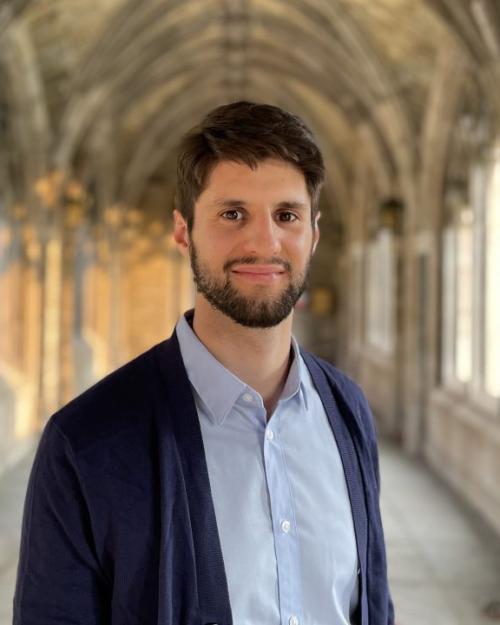Germán Reyes is a doctoral candidate in economics from La Plata, Argentina. He attended the Universidad Nacional de La Plata as an undergraduate and now studies why some students perform better than others on standardized exams and how test-score gaps eventually lead to income inequality.
What is your area of research and why is it important?
In many countries, standardized exams are used as a mechanism to place students into colleges. I use data from Brazil to study why some students perform better than others on these exams. The grading systems used by test-taking agencies typically assume that academic knowledge or preparation is the only factor that influences performance. But this is wrong. Increasing evidence shows that factors such as cognitive fatigue and limited attention also affect performance and that these factors are especially important for disadvantaged students. I try to measure how test-score gaps eventually lead to income inequality in the labor market.
What are the larger implications of this research and what is its impact?
An open question is whether test scores are an appropriate mechanism to assign students to colleges. A system that selects students only based on test scores effectively puts a lot of value on not exhibiting cognitive fatigue. Unfortunately, lower-income students typically exhibit more cognitive fatigue. Because of this, test scores effectively put a lot of weight on having a high income. Moreover, this also implies that the assignment of students to colleges generated by test scores can segregate students based on their income.
Where did you study with your Graduate School Research Travel Grant?
I traveled to the Brazilian National Institute of Educational Studies, located in Brasilia.
How important was obtaining a Research Travel Grant for your research, particularly in light of the precautions necessitated by the pandemic? What did this grant allow you to do that you might not have otherwise been able to?
The grant supported my trip to Brazil. This research project would not be feasible without traveling since I need access to identified administrative records and the only way to access such records is through a secured data room located in Brazil.
What are your hobbies or interests outside of your research or scholarship?
I enjoy hiking, listening to podcasts, rock climbing in Lindseth, running in Cass and Stewart Parks, and watching soccer (go River Plate!).
Why did you choose Cornell to pursue your degree?
My field is behavioral economics, and the behavioral economics faculty at Cornell is top-notch. Cornell’s Behavioral Economics and Decision Research Center was founded by Nobel Prize winner Richard Thaler and is often viewed as the birthplace of behavioral economics.
Read the story on the Cornell University Graduate School website.




